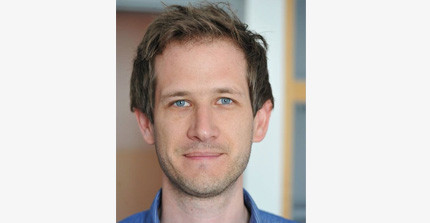Science & Academia
For anyone who identifies so strongly with their studies that they spend their evenings in bars debating theories with their friends, immerse themselves in texts related to their discipline on every train journey, or rush to the lab on weekends to check on their samples, a career in science and research is an ideal choice. This constitutes an appealing opportunity to make direct use of knowledge acquired during your studies. Nevertheless, many people are still unsure when it comes to the actual details of a career path in science and academia in Germany.
To continue a career in Science and Academia, a doctorate is a regular degree. Prospective doctoral candidates can choose between various options for realizing their doctoral project at German Universities. The path of an academic or scientific career normally runs through the stages of a degree program followed by a doctorate, a postdoc phase and then, ideally, a junior professorship or a full professorship. The earlier one starts publishing articles in specialist journals, attending conferences and establishing relationships with other academics and the scientific community, the better it is for one’s career. At specialist conferences, relationships can be cultivated and third-party funding can be acquired. Apart from that, teaching and research as well as contacts to foreign universities are important for an academic or scientific career.
However, one can observe that on average only 33% of those who have completed their doctorate are still working at the university two years after graduation. Based on this, it becomes evident that not every person who finishes his or her doctorate can actually hope to be selected for a chair in the end. In addition, it is customary for postdocs in Germany to be given only fixed-term contracts over a long period of time until a permanent position is offered.
Of course, doing research is not exclusively the domain of universities. Research can also be pursued at research institutions such as foundations or associations as well as in commercial enterprises. It is possible to carry out fundamental research as well as research for specific projects – for example product development.
When looking for a suitable university to start a career in Academia, it is helpful to have an overview of the types and structures of Universities in Germany.
Types and Structure of Universities in Germany
Obtaining a doctorate in Germany
Working as a research assistant (wissenschaftliche Mitarbeiter*in) at universities can be a good opportunity to gain experience in teaching, establish contacts with professors and earn money while working on your own doctoral thesis. However, these working contracts are often part-time and fixed term. In the long term, to build a career in research, it is normally required to hold a doctorate.
The most common route is the traditional individual or single-supervisor doctoral program (also known as a monograph), in which doctoral candidates pursue a research topic of their own choosing and are supervised by a doctoral advisor. This requires a high degree of initiative and it is not uncommon for the usual time frame of three years to be exceeded, especially if doctoral candidates are not fortunate enough to obtain one of the coveted research grants and have to finance their studies through parallel employment. An individual PhD is a good choice if you want a particular professor to be your supervisor and prefer a high degree of freedom to choose your topic and timing.
Participation in a structured and time-limited graduate program offers a less solitary path to a doctorate. These programs are often run in English and tend to be shorter. If you are new to the country, they also offer important networking and socializing opportunities. Here, several doctoral candidates conduct research on a common overarching topic under the academic supervision of university lecturers. In addition, there is usually an accompanying training program that includes thematically relevant lectures, summer schools, and colloquia, as well as courses on academic writing and publishing and on academic teaching.
Those who are pursuing a clearly inter- or binational research topic or are aiming for an international academic career can pursue a doctoral degree within the framework of a binational cotutelle program. In this program, students are jointly supervised by two advisors at two universities under a cooperation agreement and ultimately receive a doctoral degree from both universities. If you decide for the ‘sandwich model’, you start your research in another country and have several research trips to Germany. Based on a ‘coutelle model’ you can find your supervisors either individually, or in some cases there are existing framework agreements between universities, and you will be awarded titles from both universities (or a joint title).
In addition to the monograph, there is also the option of a cumulative doctoral degree, which consists of several smaller scientific publications that are brought together in a methodological and thematic context at the end by means of a summary presentation. This type of doctoral degree is a good option, for example, if you are already working in a science-related field after completing your studies and are able to publish articles in specialist journals on a regular basis as part of your work.
After completing your doctorate, you will need to decide whether you want to pursue an academic career at a university, work at a non-university research institution, or join the research and development department of a company. In the latter two cases, you can simply apply for suitable positions immediately after completing your doctorate (see job search below). Depending on your discipline and the job posting, you will then work on specific research projects or develop and optimize market-ready products, for example in the food, pharmaceutical, chemical, or medical industries. Accordingly, there are many opportunities to work in other fields such as quality assurance, product development, or patent law, especially in private-sector research and development departments. An alternative to direct research activities is employment in science-related fields such as science communication, science management, or knowledge and technology transfer.
If you decide to pursue a traditional university career, you usually have to be prepared for a long series of fixed-term contracts until you know whether you will ultimately be awarded one of the coveted professorships. According to the job and advice portal academics.de, this is often not decided until the age of 40 or 50. If you then realize at the end of your career that you are not qualified for a professorship, it can be difficult to gain a foothold in the non-university job market, which is why it can be useful to have a Plan B up your sleeve. Anyone who decides to pursue an academic career at a university despite these hurdles should be very persistent and motivated, passionate about their subject, and have a certain amount of assertiveness. The earlier you start publishing articles in specialist journals, attending conferences, and networking with other scientists, the better it will be for your career. Specialist conferences are a great place to cultivate relationships and acquire third-party funding.
The path of such a classic university career always leads from a doctorate to a postdoctoral qualification and, hopefully, to a professorship at the end.
University research career – from doctoral degree to professorship
Whether you are interested in non-university research or an academic career at a university, it is advisable to establish yourself academically and make contacts early on in your studies. To this end, you can take on specific activities as a research assistant, participate in summer schools and conferences, and try to define your own research focus at an early stage through term papers and theses.
Ideally, you will also be able to publish your first texts and papers, e.g., by contributing to an anthology edited by your own professors.
Non-university research institutions and research departments of companies also offer internships, working student positions, and master's theses, which allow you to gain a foothold in the relevant organization with your chosen topic.



